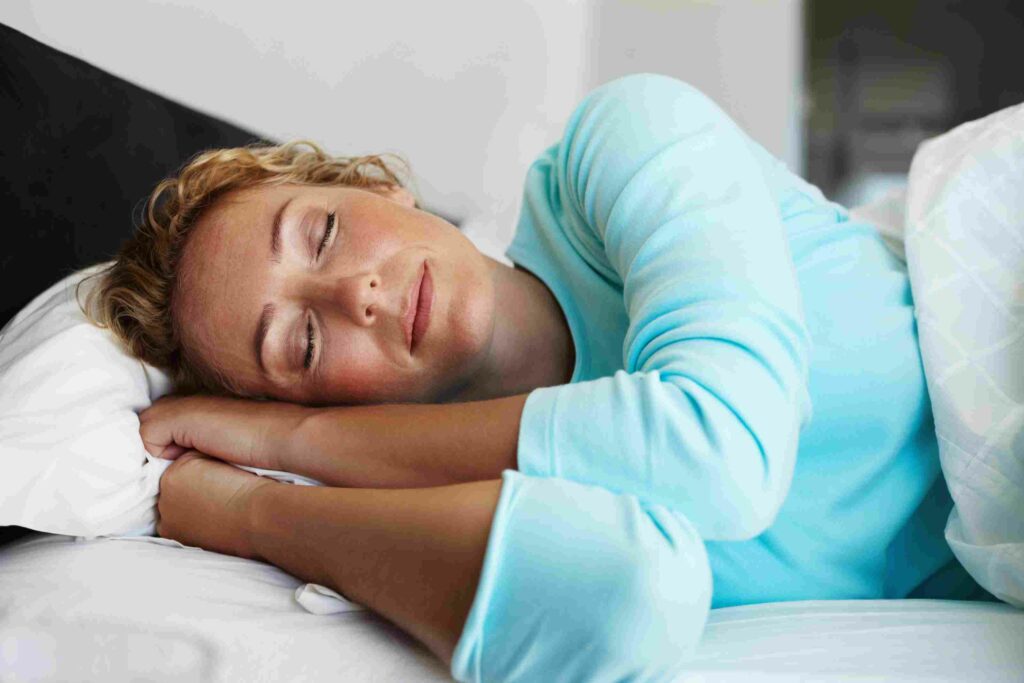Do you find yourself waking up drenched in sweat in the middle of the night, tossing and turning as your sleep is disrupted by relentless perspiration? Night sweats can be more than just a discomfort; they can significantly impact your quality of sleep and overall well-being. Fortunately, there are various medications available that can help alleviate this nocturnal nuisance. In this comprehensive guide, we’ll explore the importance of seeking medical advice, and highlight some effective medicines for night sweats to cool those restless nights.
Contents
What Is The Importance Of Medicines For Night Sweats?
 Seeking medicines for night sweats is important for several reasons, primarily centered around improving one’s overall well-being and addressing potential underlying health issues. Here are some key reasons why seeking medical help for night sweats is crucial:
Seeking medicines for night sweats is important for several reasons, primarily centered around improving one’s overall well-being and addressing potential underlying health issues. Here are some key reasons why seeking medical help for night sweats is crucial:
- Quality of Sleep
Night sweats can significantly disrupt sleep, leading to constant waking, discomfort, and fatigue. Seeking medicine helps in managing these symptoms, promoting a more restful and uninterrupted sleep.
- Improved Quality of Life
Persistent night sweats can negatively impact one’s quality of life, affecting mood, productivity, and daily activities. Medications prescribed by a healthcare provider aim to alleviate these symptoms, contributing to an improved overall quality of life.
- Prevention of Complications
In some cases, night sweats may be indicative of more serious health conditions, such as hormonal disorders or infections. Prompt medical intervention can help prevent potential complications by addressing the underlying health issue at an early stage.
- Monitoring Side Effects
Some medications may have side effects or interactions with other medications. Seeking medical advice allows healthcare professionals to monitor and manage these potential side effects. Thus, ensuring the safety and well-being of the patient.
- Addressing Hormonal Imbalances
Hormonal fluctuations, especially during menopause or andropause, can contribute to night sweats. Medications, including hormone replacement therapy (HRT), can help balance hormones and alleviate associated symptoms.
- Psychological Well-Being
Constant sleep disturbances can take a toll on mental health, leading to increased stress, anxiety, and irritability. Managing night sweats through medication can positively impact mental well-being and contribute to a more positive outlook.
All in all, seeking medicine for night sweats is essential not only for immediate relief but also for addressing any underlying health concerns and improving overall quality of life. It allows individuals to work collaboratively with healthcare professionals to identify and implement effective solutions tailored to their specific needs.
What Are Some Effective Medicines for Night Sweats?
 For women experiencing night sweats associated with menopause, there are several effective medicines for night sweats that can help manage. It’s important to note that the choice of medication should be made in consultation with a healthcare professional, as individual needs and medical histories can vary. Here are some common options:
For women experiencing night sweats associated with menopause, there are several effective medicines for night sweats that can help manage. It’s important to note that the choice of medication should be made in consultation with a healthcare professional, as individual needs and medical histories can vary. Here are some common options:
Selective Estrogen Receptor Modulators (SERMs)
SERMs, such as raloxifene, are medications that act on estrogen receptors in the body. They can help alleviate symptoms like night sweats without affecting the uterus. However, the use of SERMs should be discussed with a healthcare provider due to potential side effects.
Gabapentin
Originally developed to treat seizures, gabapentin is effective in reducing hot flashes and night sweats. It is believed to regulate neurotransmitters that play a role in temperature regulation.
Clonidine
Clonidine, typically used to treat high blood pressure, has been shown to reduce the frequency and intensity of hot flashes and night sweats in some women. It works by affecting certain neurotransmitters in the brain.
Antidepressants (SSRIs/SNRIs)
Selective serotonin reuptake inhibitors (SSRIs) and serotonin-norepinephrine reuptake inhibitors (SNRIs), commonly prescribed for depression and anxiety, can also help manage menopausal symptoms. Examples include venlafaxine (SNRI) and paroxetine (SSRI).
Oxybutynin
Oxybutynin, usually used to treat overactive bladder, has shown promise in reducing the frequency and severity of hot flashes and night sweats in some women.
Bioidentical Hormones
Bioidentical hormones are synthesized to be chemically identical to those produced by the body. They are available in various forms, including creams, gels, and pills. While some women find relief with bioidentical hormones, their safety and efficacy are still subjects of ongoing research.
Vitamin E
Some women find relief from night sweats with vitamin E supplements. However, its effectiveness varies among individuals, and it should be taken with caution, as high doses may have potential risks.
It’s crucial to approach the treatment of menopausal symptoms, including night sweats, with an informed and individualized perspective. Healthcare providers can assess the risks and benefits of each option based on a woman’s health history and specific symptoms. Regular follow-up appointments are essential to monitor the effectiveness of the chosen treatment and adjust it as needed.
What Are The Things To Consider Before Taking Medicines?
Before taking any medication, it’s important to consider several factors to ensure safe and effective use. Here are key things to keep in mind:
- Consultation with Healthcare Professionals: Always consult with a healthcare provider before starting any new medication. They can assess your medical history, current health status, and potential interactions with other medications you may be taking.
- Accurate Diagnosis: Ensure that you have received a clear and accurate diagnosis for your symptoms. Different conditions may require different treatments, and medications should be targeted to address the specific issue.
- Potential Risks and Benefits: Discuss the potential risks and benefits of the medication with your healthcare provider. Consider whether the benefits outweigh the risks and whether the medication is the most suitable option for your specific condition.
- Allergies and Sensitivities: Inform your healthcare provider about any allergies or sensitivities you may have to medications or their ingredients. This is crucial to prevent adverse reactions.
- Existing Health Conditions: Inform your healthcare provider about any existing health conditions, as certain medications may exacerbate or interact with pre-existing medical issues.
- Pregnancy and Breastfeeding: If you are pregnant, planning to become pregnant, or breastfeeding, discuss the implications of the medication with your healthcare provider. Some medications may pose risks during pregnancy or while breastfeeding.
- Dosage and Administration: Follow the prescribed dosage and administration instructions carefully. Do not self-adjust the dosage without consulting your healthcare provider.
- Storage and Handling: Store medications as directed on the packaging. Some medications may require refrigeration, protection from light, or specific storage conditions.
Remember, individual responses to medications can vary, and what works for one person may not be suitable for another. Open communication with your healthcare provider is crucial. This will help to ensure that the chosen medication aligns with your specific health needs and circumstances.
What Are Some Tips To Help In Night Sweats?
 Managing night sweats involves a combination of lifestyle changes, home remedies, and, in some cases, medical interventions. Here are some tips to help alleviate night sweats:
Managing night sweats involves a combination of lifestyle changes, home remedies, and, in some cases, medical interventions. Here are some tips to help alleviate night sweats:
- Keep Your Bedroom Cool: Maintain a cool and comfortable sleep environment by adjusting the room temperature, using fans, or investing in cooling bedding.
- Choose Breathable Bedding: Opt for breathable, moisture-wicking bedding materials. Such as cotton or moisture-wicking sheets, to help regulate body temperature.
- Wear Lightweight Sleepwear: Choose lightweight, breathable sleepwear made from natural fabrics to promote airflow and prevent overheating.
- Stay Hydrated: Drink plenty of water throughout the day to stay hydrated. Avoid excessive caffeine and alcohol, as they can contribute to dehydration.
- Limit Spicy Foods: Spicy foods can trigger sweating. Limit the consumption of spicy foods, especially in the evening, to help reduce the likelihood of night sweats.
- Maintain a Consistent Sleep Schedule: Stick to a regular sleep schedule by going to bed and waking up at the same time each day. Consistent sleep patterns can help regulate your body’s internal clock.
- Limit Evening Screen Time: Reduce exposure to electronic devices with screens, such as phones and computers, in the hour leading up to bedtime. The blue light emitted by screens can interfere with the body’s natural sleep-wake cycle.
- Limit Caffeine and Alcohol Intake: Reduce consumption of caffeinated beverages and alcohol, especially in the hours leading up to bedtime, as they can contribute to increased body heat and night sweats.
- Use Fans or Air Circulation: Increase air circulation in your bedroom with the use of fans or an air conditioner. Good ventilation can help keep the room cool.
- Cooling Products: Consider using cooling products, such as cooling pillows, mattress toppers, or gel pads, to help regulate body temperature during sleep.
Remember, individual responses to these tips can vary, and it may take some trial and error to find the combination that works best for you. If night sweats are persistent or severe, seeking guidance from a healthcare professional is advisable.
Conclusion
In conclusion, managing night sweats is about finding a balance between lifestyle adjustments, home remedies, and, when needed, medical support. From creating a cool and comfortable sleep environment to practicing stress-reduction techniques, there are various steps you can take to ease those restless nights. It’s essential to stay hydrated, maintain a healthy weight, and be mindful of your diet. If home remedies don’t bring relief, don’t hesitate to consult with a healthcare professional.
They can help identify the underlying causes and guide you toward effective solutions, ensuring you get the restful sleep you deserve. Remember, everyone’s journey is unique, so finding the right combination of strategies that work for you is key to a good night’s sleep. If you are facing menopause related issues, menopause treatment at HerMantra can help. Book your free trial online menopause treatment session now.


